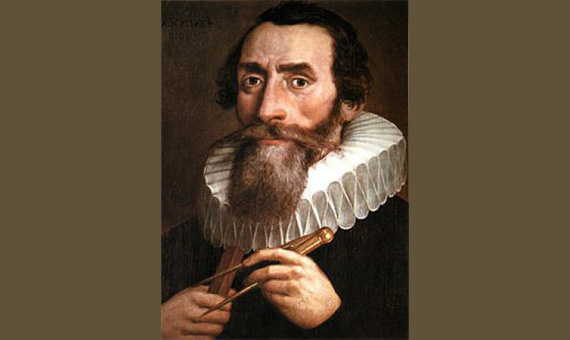Azadi ka Amrit Mahotsav Kolkata event honours four Clergymen
Pope Francis asks businesses to support working women: They’re ‘afraid to get pregnant’
Study: Christianity may lose majority, plurality status in U.S. by 2070
Indian politician declines Magsaysay Award under party pressure
Like John Paul II, Pope Francis heads to Kazakhstan during time of war

Johannnes Kepler, the 17th century astronomer, embodies one of the best example of the reconciliation and integration between science and faith. Discovery of the three mathematical laws of planetary motion, known as “Kepler’s Laws” is the most important achievement of Kepler along with this ideas of the elliptical orbital patterns of planets. He endorsed Copernicus’s heliocentrism.
For Kepler, the universe was sacred with a divine origin. He wrote in 1599: ‘the world is the corporeal image of God and the soul is the non-corporeal image of God.” He referred to the universe as the “bright temple of God.” Kepler saw the reflection of the three Persons of the Holy Trinity in the universe. He taught that the spherical universe of ours is an image of the Triune God. Since the universe is something sacred, the study of the universe also is something very sublime, just like the study of the Sacred Scripture. It is the study of God Himself, manifested in and through the nature. In Astronomia Nova Kepler advocated that it was “the divine voice that calls humans to learn astronomy.” Hence, in Kepler’s view astronomers were priests of the Almighty. He wrote to his fellow-scientists: “Indeed I am of the opinion that since astronomers are priests of God with respect to the Book of Nature, we should concern ourselves not with the praise of our cleverness but with the Glory of God.” He wanted his famous work Epitome to be considered as a hymn composed as “Priest of God at the Book of Nature.”
Kepler had a personal love for Christ and he believed in the authority of Scripture. One of his famous saying is: “O God, I am thinking Thy thoughts after Thee.” He opened his famous work Harmonies of the World likewise: “I commence a sacred discourse, a most true hymn to God the Founder, and I judge it to be piety, not to sacrifice many hecatombs of bulls to Him and to burn incense of innumerable perfumes and cassia, but first to learn myself, and afterwards to teach others too, how great He is in wisdom, how great in power, and of what sort in goodness.” His conclusion is all the more enticing: “Purposely I break off the dream and the very vast speculation, merely crying out with the royal Psalmist: Great is our Lord and great His virtue and of His wisdom there is no number: praise Him, ye heavens, praise Him, ye sun, moon, and planets, use every sense for perceiving, every tongue for declaring your Creator…to Him be praise, honour, and glory, world without end. Amen.”
Leave a Comment